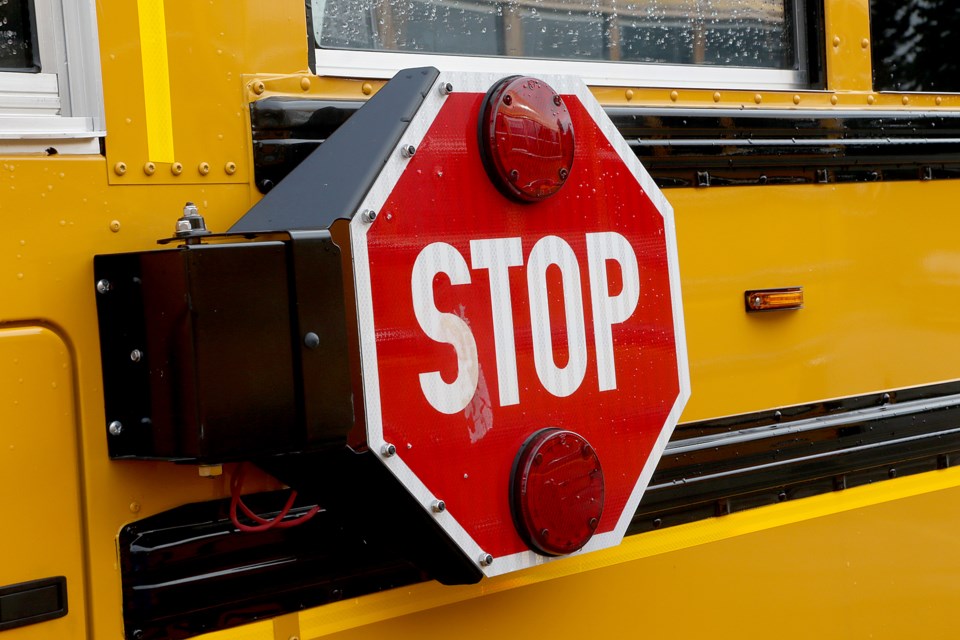THUNDER BAY – The City of Thunder Bay will consider launching a new surveillance program targeting drivers who illegally pass school buses, following a city council vote Monday.
The consortium that oversees local school busing, Student Transportation Services of Thunder Bay, has publicly urged the city to hop on board a provincial camera program that levies fines and demerit points against drivers who pass a school bus while its stop arm is extended with lights flashing.
It’s a growing problem, with local drivers reporting 188 violations this school year as of mid-November, according to STSTB.
Coun. Kristen Oliver said that matched what she's heard from parents and drivers.
“Over the past few years, more school bus operators have been identifying that they’re seeing more drivers blowing past their buses when the stop arm is extended," she said. “I heard from one bus operator that he’s started to affix his own dash cam onto his bus.”
The consortium could have to wait a little longer to learn if the city will implement the program. Council voted unanimously for Oliver's motion calling for a report on the possibility Monday, but it's not due back until Sept. 12, 2022.
It’s an offense that’s often difficult for police to enforce, said the Westfort ward councillor, adding drivers should be able to focus on their jobs, not taking down details like license plates of offending vehicles.
The province passed legislation last year allowing the creation of school bus stop arm camera programs, making municipalities responsible for implementation. A number have opted in.
An image of the driver’s license plate is used to ticket an offending vehicle’s registered owners.
For a first offence, the penalty includes a fine up to $2,000 and six demerit points.
The report will review the experience of other municipalities that have implemented similar programs, compare costs and benefits, and consider what form a partnership with STSTB would take.
Studies have shown the cameras could reduce violations by about two-thirds.
Oliver said she’s relatively confident a camera program would pay for itself through fine revenue, but said financial considerations are secondary.
“If we have an opportunity to use the tools and resources the province is giving us to enhance the safety of our community, I think as councillors we really need to take a look at that,” she said.
